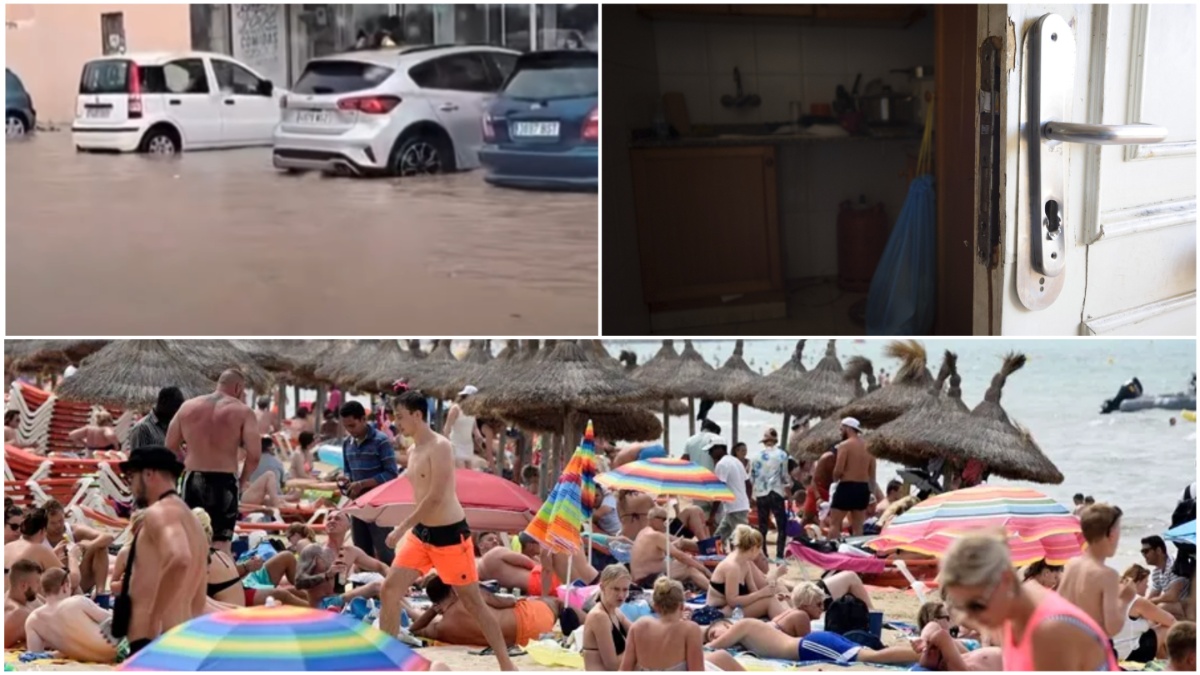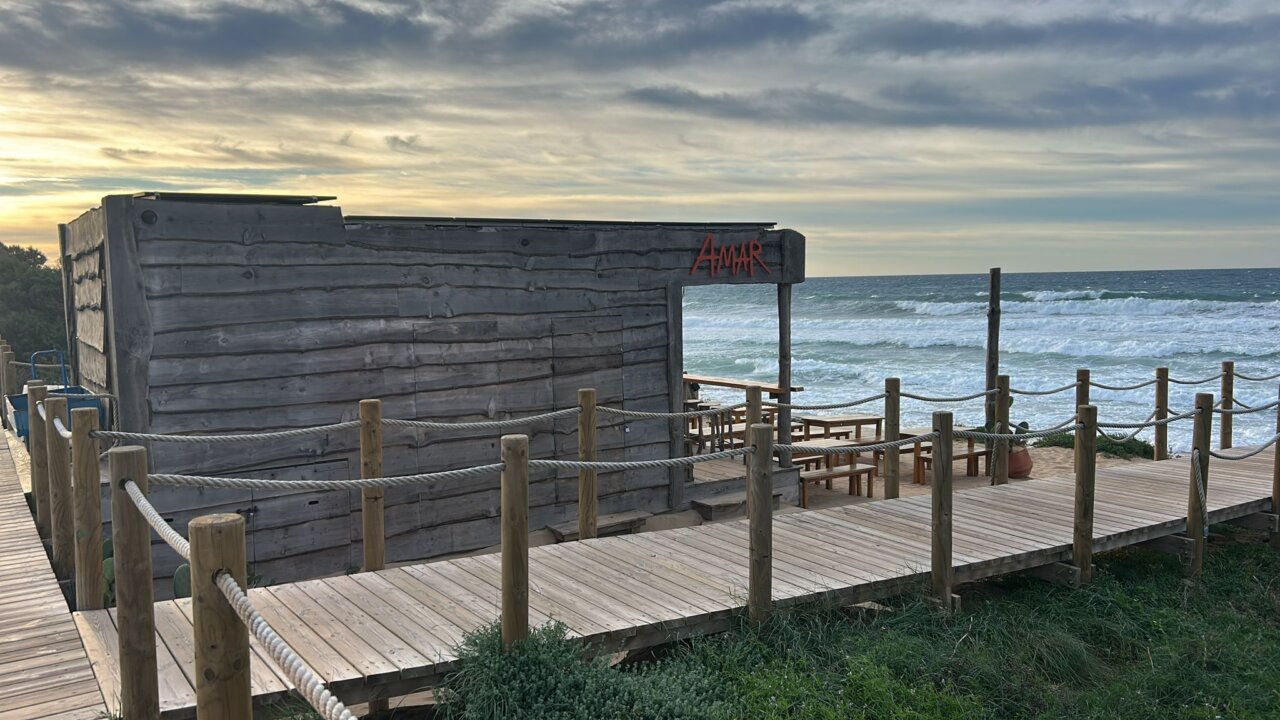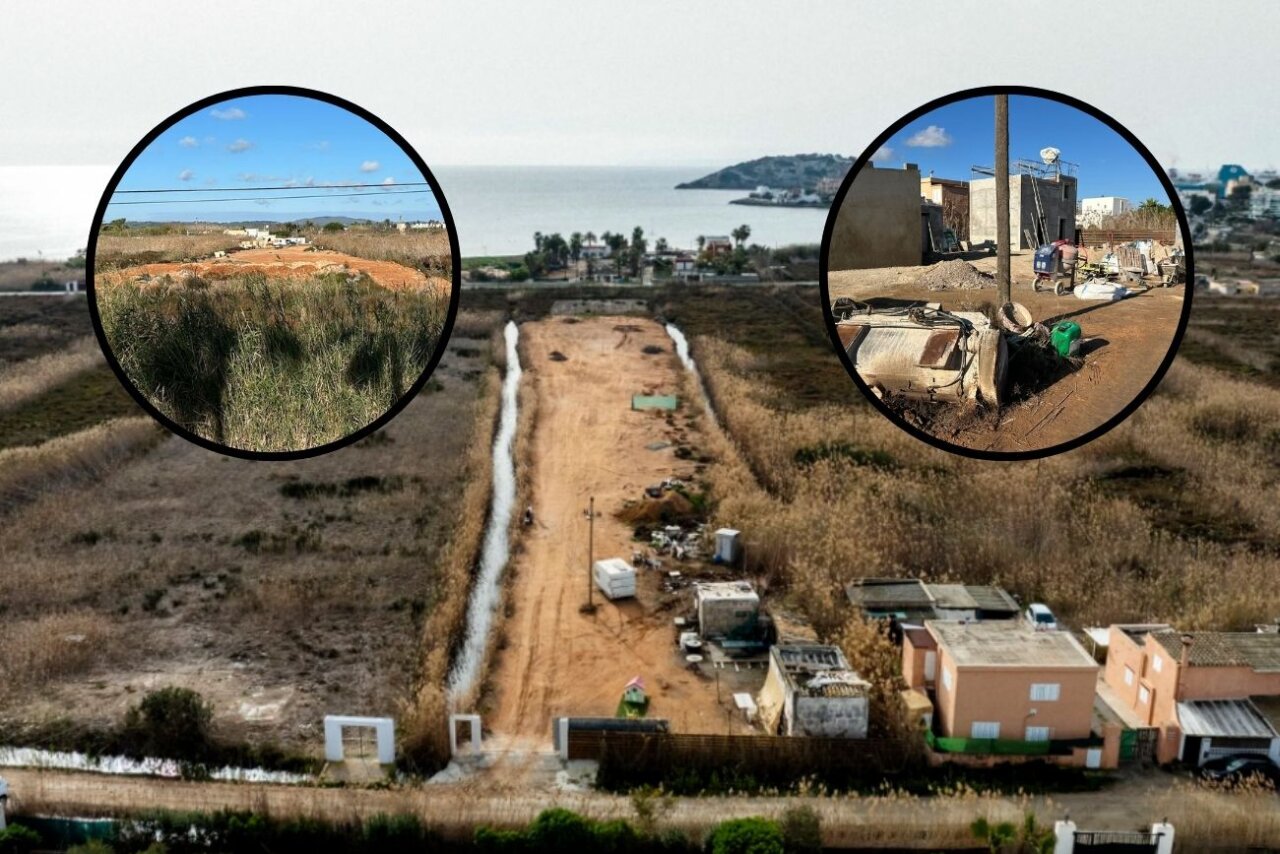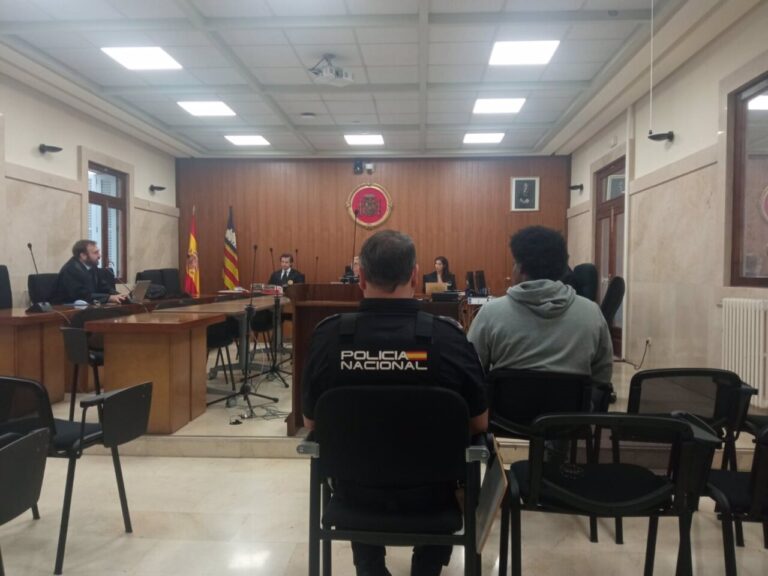Dana, inquiokupa and turistification are 3 of the 12 candidate words to become the word of the year 2024, according to the Fundación del Español Urgente (FundéuRAE), promoted by the Real Academia Española and Agencia EFE. These words not only reflect current social debates, but are also terms deeply linked to some of the main problems facing Ibiza.
Each year, the Foundation chooses 12 terms based on their presence in the media and in social debate in the Spanish-speaking world, and also evaluates their interest from a linguistic point of view: a curious formation, a meaning or a spelling that generates doubts among speakers.
Definition of dana
The voice dana, lexicalized form of the acronym DANA (whose development is isolated depression in high levels), is written entirely with lowercase letters. The Dictionary of the Spanish language, in its latest update, has incorporated the form dana as a common noun written in lower case. It makes the plural with normality: las danas. It is not appropriate to write it with initial capital letter(la Dana). It would also be possible to use the acronym DANA, which will be written entirely with capital letters and will remain invariable in plural in written texts: las DANA (not las DANAS, las DANA’s or las DANAs).
Dana in Ibiza
The effects of the Dana were felt in Ibiza during the early morning of November 13, with heavy rains and strong winds that generated five incidents attended by emergencies. Among the main problems were the fall of a tree in Santa Eulària des Riu and rockslides on the roads EI-200 in Santa Eulària and EI-321 in Sant Carles. Likewise, the arrival of the Dana to the island rekindled the debate among the parliamentary groups on the construction of houses in flood zones, a measure initially promoted by the Balearic PP but which, in the light of the devastating consequences of the phenomenon in Valencia, forced the politicians to rethink the matter and agree on its prohibition.
Definition of inquiokupa
The word inquiokupación, like inquiokupa, is a term formed from the truncation of inquilino, to which the noun okupación is added by composition. The latter in turn derives from okupa, already included in the Dictionary of the Spanish language to refer to the ‘person or movement that advocates the occupation of uninhabited dwellings or premises’. Thus, it is a neologism intended to designate those individuals who, being at first the legal tenants of a dwelling or premises, after a while fail to comply with the agreed payments and refuse to leave the property. If it is decided to use it, it is written all together, just like inquiokupa, and it is not necessary to use any kind of highlighting or quotation marks: inquiokupación.
Inquiokupa in Ibiza
While there are no official figures on how many cases there are in Ibiza, the latest report from the Ministry of the Interior has shown that in the Balearic Islands cases of home squatting have grown in the last decade: from 193 in 2013 they rose to 407 in 2023, an increase that places the region among the most affected by this phenomenon. The boom in squatting reached its peak in 2021, when 509 incidents of trespassing or usurpation of real estate were recorded. Since then, a slight decrease has been observed, with 417 cases in 2022 and 407 in 2023, which generates a faint optimism, although experts warn that it is still early to talk about a change in trend. Recently, La Voz de Ibiza reported a case of inquiokupación in Santa Eulària des Riu, where a woman of Argentine nationality refused to leave a room she had rented to another Argentine woman through a verbal contract. The tenant resorted to an “antiokupa” company that put pressure on the inquiokupa to leave the place.
Definition of touristification
The noun turistification is a well-formed term used to refer both to tourist overcrowding and to its impact on the commercial and social fabric of certain neighborhoods or cities. This noun and the verb turistificar,
which is also commonly used, refer to the impact of mass tourism as well as to the impact on the resident of a place when services, facilities and businesses are oriented and conceived with the tourist in mind rather than the citizen who lives there permanently. In this sense, the alternative “touristization” is also used, although to a lesser extent, which should not be censured and which is also used to indicate, in a more neutral way, that something is becoming more touristy.
Tourism in Ibiza
The Sustainability Report 2023 published in November of this year by the Sustainability Observatory of IbizaPreservation has highlighted the remarkable growth in population, tourism and transport indicators in Ibiza, warning about the impact of this trend on the island’s resources and sustainability. The report points to unprecedented figures in several aspects that shape life in Ibiza and highlights the urgency of responding to a high-impact tourism model. On the demographic front, the report’s data reflect a 13.4% increase in population over the last ten years, reaching an average of 218,384 people in 2023, a figure that reflects the constant pressure on the island’s services and infrastructures. This increase has gone hand in hand with a record-breaking flow of visitors, reaching 3,379,359 international tourists, 10.2 % more than in 2022. In addition, the number of cruise passengers has also grown, with 548,969 passengers disembarking in Ibiza in 2023, far exceeding pre-pandemic figures.
Other words nominated by FundéuRAE
In addition to dana, inquiokupa and turistification, the list of words nominated for word of the year 2024 by FundéuRAE is completed with “gordofobia”, “narcolancha”, “woke”, “alucinación”, “fango”, “mena”, “micropiso”, “pellet” and “reduflación”.
Fatphobia
Gordophobia, written as a single word and without hyphen, refers to everything related to it, or to those who have this aversion or rejection. It is grammatically valid to use both the adjectives gordófobo and gordofóbico, constructed with the endings -fobo and -fóbico, respectively.
Narcolancha
The compositional element narco- (meaning ‘drug’) appears attached to very diverse voices to express its relation to this type of substances. It is found in narcodollar, narcotráfico or narcoviolencia, and in others of more recent appearance such as narcolancha.
Woke
This anglicism is usually translated as an informal adjective meaning ‘sensitive to injustice’, and in Spanish it is used both positively and negatively in multiple contexts. It is written in italics if pronounced the same as in English (roughly /wóuk/), but can be adapted and written in round and without quotation marks if pronounced as it is written, /wóke/.
Hallucination
Although not a new word, both it and hallucinate have expanded in meaning with the development of artificial intelligences. They are used in the field of technology to refer to the invention of erroneous information by artificial intelligence systems. It is an extension of the sense that these words already had, and it is not necessary to mark them with italics or quotation marks.
Mud
The consequences of the dana in Spain, and the cleanup work that is still going on in many affected places, have multiplied the appearances of the term mud in the Spanish media. Likewise, this noun has been very present in political and social information with its second meaning, ‘vilipendio, degradation’, a case in which it does not need quotation marks or italics.
Mena
The situation of unaccompanied foreign minors, a term that corresponds to the acronym MENA, arriving in a new country has been another of the debates of the year, in which political polarization has given this term a pejorative tinge that dehumanizes children in vulnerable situations. Although as an acronym it is capitalized, its lexicalization as a common noun written in lower case is well established.
Microfloor
Continuing with the question of housing in many countries, another of the most repeated terms has been micropiso, formed by the union of the prefix micro- (meaning ‘very small’) to the noun piso, with the sense of ‘set of rooms that constitute independent housing in a house of various heights’. It is recalled that it is written as a single word, without hyphen or space (not micro-floor or micro-floor).
Pellet
The foreign word pellet is currently used in many contexts. The word pellet has entered the Dictionary of the Spanish Language (DLE) in its latest update, 23.8. This word – which in Spanish could also be adapted as pélet and, depending on the field, have alternatives such as granza or gránulo – was very present, for example, in the media in Spain due to the large spill of small plastic balls that occurred on the beaches of Galicia at the beginning of the year.
Reduflation
The increase in the price of goods and services in recent months has not only resulted in higher prices, but sometimes also in a smaller product at the same price. For this reason, the word reduflation, an acronym formed from reduction and inflation, has been another of the most repeated during 2024. It is written with a single ce (not reduflaction).










